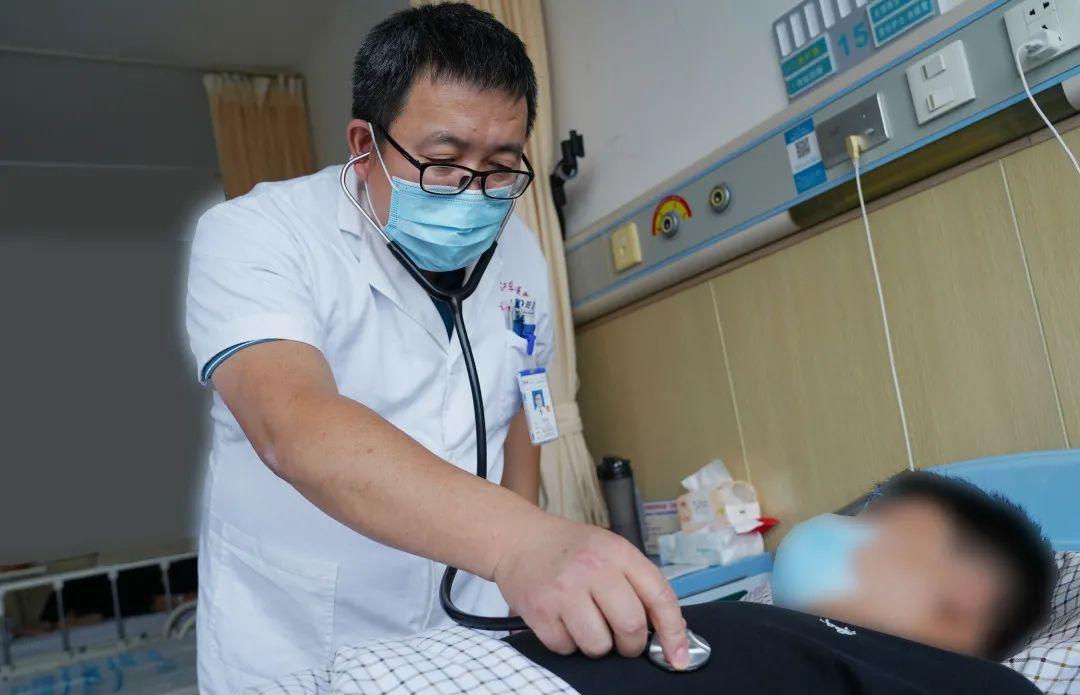Even after a week of night shift, Xiao Jia, a post-90s boy who worked in Hangzhou, came home and fell asleep, but woke up in pain in his sleep. Sent to the hospital for examination, it was shown as acute inferior myocardial infarction.
The doctor said that it was fortunate that it was sent half an hour early and saved Xiao Jia's life...,
After 7 days of night shift, the boy slept for three hours and suddenly had a heart attack
The hospital urgently activated the emergency green channel
Half an hour later, the case fatality rate and disability rate are greatly improved
In April this year, Xiao Jia, who lives in the northeast, followed his relatives and friends to Hangzhou to work. This happened after he had been working the night shift for a week straight. At seven o'clock in the morning, he returned to his dormitory after work, washed up lightly, and fell asleep. "In my sleep, I had an unbearable pain in my chest, somewhat like a pinprick." Xiao Jia said, "When I woke up, I found that in addition to the pain in my chest, I couldn't breathe, and the sweat from it wet the sheets." ”
At ten o'clock in the morning, Xiao Jia, who felt that the situation was not good, quickly asked his colleagues to send himself to the emergency room of the Ninth People's Hospital of Hangzhou. Soon, examination revealed that this was an acute inferior myocardial infarction. "The golden rescue time for patients with myocardial infarction is 120 minutes, beyond which the mortality rate and disability rate of rescue will increase." Jiang Tonghui, deputy chief physician of the Department of Cardiology, said. At 11:00 a.m., 90 minutes after Xiao Jia's onset of illness, in order to win this race against the god of death, the City Ninth Hospital immediately launched the emergency green channel, and experts from cardiology and anesthesiology were quickly in place.
Two surgeries
One relieves the threat to life, one restores the blood supply
Due to the complete occlusion of the proximal right crown of Xiao Jia, a hemangioma has developed. While the proximal end of the anterior descending branch was diffuse plaque formation, the narrowest point reached 90%, for safety reasons, Jiang Tonghui decided to operate on Xiao Jia twice.

The first was an emergency surgery. Jiang Tonghui first performed "coronary angiography + coronary intervention", and implanted a stent in Xiao Jia's right coronary artery according to his own conditions and condition. After the balloon was expanded many times, the blood supply channel was successfully restored, helping Xiao Jia to smoothly relieve the threat to life. A week later, Xiao Jia underwent a second surgery. "This time it is coronary angiography + anterior descending branch artery intervention, mainly to dilate the severely narrowed anterior descending branch and restore normal blood supply." Jiang Tonghui explains. During the operation, through the implantation of the stent and the posterior expansion of the balloon, Xiao Jia's blood flow quickly returned to normal.
How can you have a heart attack at a young age?
Doctors remind: These people are more likely to miss the golden rescue period
What is puzzling is why Xiao Jia, who is not yet 30 years old, suddenly has a heart attack? "It's not uncommon for young people to have heart attacks over the years." Jiang Tonghui said that this is related to the bad lifestyle of many young people, such as smoking, alcoholism, mental stress, lack of exercise, etc., which will bury hidden dangers for myocardial infarction, high blood pressure, high blood sugar and so on.
Xiao Jia himself has a history of diabetes, but taking medication irregularly, and smoking about 30 cigarettes a day, coupled with long-term night shifts, these factors will also promote his incidence. It is worth mentioning that young people without underlying diseases are more likely to be careless when they occur, resulting in delayed treatment, and then lose the best time for rescue. Jiang Tonghui reminded that in addition to quitting smoking and limiting alcohol, regular work and rest, healthy diet, strengthening exercise, etc., young friends should also have regular physical examinations, timely discover problems in the body, and take measures to intervene in advance. Young people with poor lifestyle habits, men over the age of 40, and postmenopausal women are required to have regular blood lipid measurements.
Source: Health Hangzhou